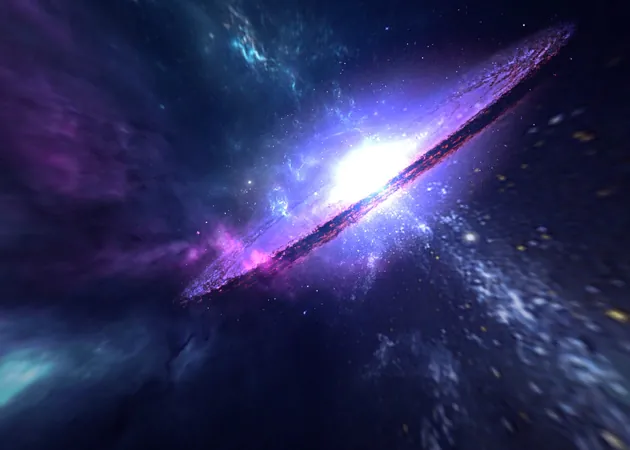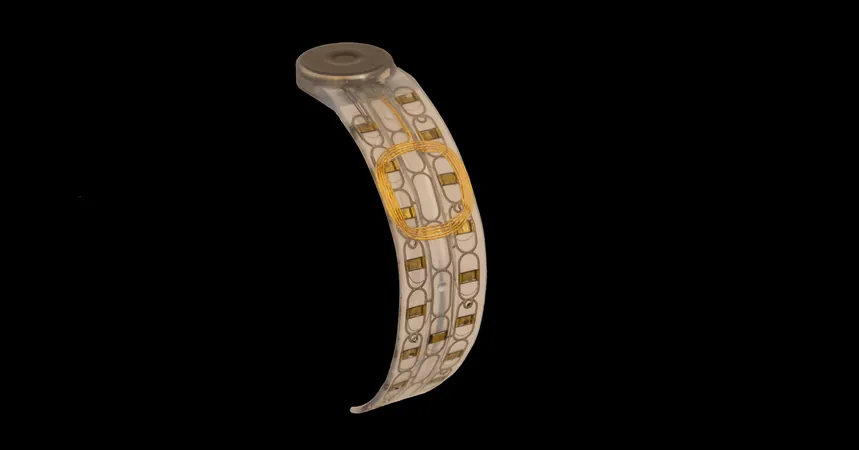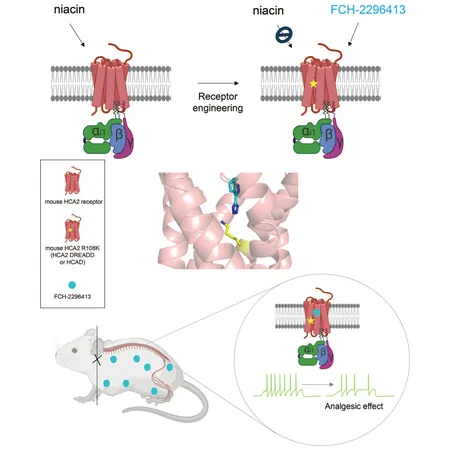
Unlocking Cosmic Secrets: New Theory Could Solve Black Hole Information Dilemma
2024-12-11
Author: John Tan
Revolutionary Insights in the Quantum Realm
A groundbreaking theory posits that the very structure of space-time may harbor quantum information, shedding light on the enigmatic Black Hole Information Paradox. The Quantum Memory Matrix (QMM) framework proposes that this information is stored in the fabric of space-time itself, offering a fresh perspective that could bridge the gap between quantum mechanics and the general theory of relativity.
Scientists from the acclaimed quantum computing company, Terra Quantum, along with researchers from Leiden University, published their findings in the journal *Entropy*. This new hypothesis not only aims to address significant theoretical issues but may also pave the way for advances in quantum computing and more accurate models of black holes.
Decoding Cosmic Data in Space-Time
The QMM theory introduces the concept of “quantum imprints” — distinct traces left in space-time by quantum interactions. These imprints could potentially allow for the retrieval of information during a black hole's evaporation process, particularly through mechanisms like Hawking radiation. This directly confronts the Black Hole Information Paradox: the conundrum of reconciling quantum mechanics—which states information is never lost—with classical theories that suggest black holes obliterate this information upon evaporation.
Unlike previous models that focused on storing information at boundaries, the QMM embraces a more holistic approach by embedding data directly within the volume of space-time. The framework models space-time as a network of quantum cells, tightly linked to a finite-dimensional Hilbert space. This innovative approach ensures adherence to “unitarity,” a core principle of quantum mechanics that guarantees the sum of probabilities remains constant even amidst complex phenomena such as black hole formation and evaporation.
Addressing The Black Hole Enigma
The implications of the QMM model extend far beyond mere theoretical discussion. Should this hypothesis hold true, it could significantly reshape our current understanding of quantum gravity and offer testable predictions observable in the realms of astrophysics and laboratory experiments. For example, researchers anticipate that deviations in Hawking radiation’s thermal spectrum could be detected using advanced telescopes, while subtle discrepancies in gravitational wave signatures during black hole mergers may also provide empirical backing for the QMM principles.
New Horizons for Quantum Computing
Quantum computing enthusiasts should take note: the study has roots in developmental aspects of quantum information science. By employing mathematical frameworks inherent in quantum computing—like unitarity, superposition, and entanglement—the QMM hypothesis may reveal novel methods for data preservation and retrieval within quantum systems. This can result in breakthroughs for maintaining coherence and undertaking complex error correction, vital for future quantum technologies.
The researchers suggest that QMM could inspire a paradigm shift in how information is safeguarded and accessed, enhancing the viability of quantum processors under extreme operational conditions. While the direct creation of the theory is not attributed solely to advancements in quantum computing, the interplay between the two fields is underscored as critically important.
A Path Forward: Methodology and Future Research
The research team devised a detailed mathematical structure for the QMM, focusing on quantized units of space-time and mechanisms for information encoding and retrieval. By ensuring local interactions between quantum fields and space-time quanta remain reversible, the theory remains firmly grounded in both quantum mechanics and general relativity.
As exciting as the QMM hypothesis is, the road ahead includes challenges requiring experimental validation. Predictive effects, such as observing non-thermal features in Hawking radiation, will necessitate sensitive instruments. Additionally, further exploration of QMM's compatibility with established theories of quantum gravity, including string theory, remains essential.
A Game-Changer in Theoretical Physics?
As the study progresses, researchers assert, "The QMM hypothesis presents an intriguing avenue that could lead us to a more profound grasp of the universe's intricacies." With the potential to unravel the mysteries surrounding black holes and quantum information, this theory may indeed hold the keys to cosmic secrets yet untold.





 Brasil (PT)
Brasil (PT)
 Canada (EN)
Canada (EN)
 Chile (ES)
Chile (ES)
 España (ES)
España (ES)
 France (FR)
France (FR)
 Hong Kong (EN)
Hong Kong (EN)
 Italia (IT)
Italia (IT)
 日本 (JA)
日本 (JA)
 Magyarország (HU)
Magyarország (HU)
 Norge (NO)
Norge (NO)
 Polska (PL)
Polska (PL)
 Schweiz (DE)
Schweiz (DE)
 Singapore (EN)
Singapore (EN)
 Sverige (SV)
Sverige (SV)
 Suomi (FI)
Suomi (FI)
 Türkiye (TR)
Türkiye (TR)